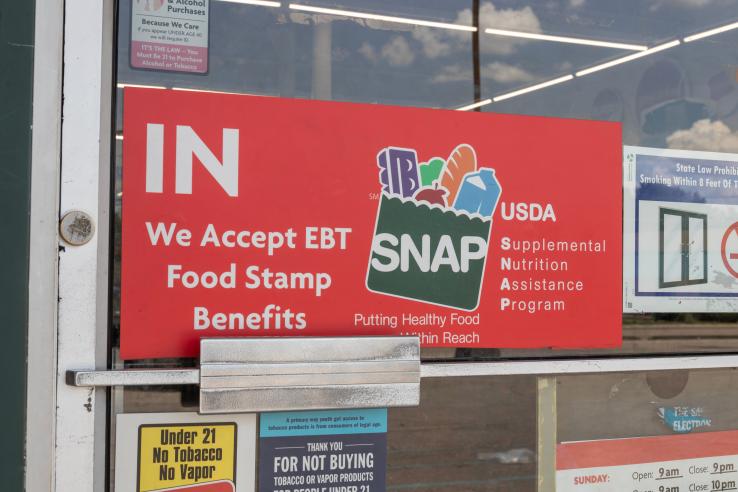
What evidence says about how to improve SNAP and reduce food insecurity

Since the 1930s, the Farm Bill has dictated a range of critical agriculture and food programs that address pressing issues like nutrition and support for farmers across our country. Its current benefits, including the Supplemental Nutrition Assistance Program (SNAP), are set to expire in September 2024.
Congress is currently in the process of reauthorizing the bill for five more years. This process provides policymakers with a unique opportunity to strengthen SNAP, a key anti-hunger program that reached 38 million Americans in 2019. A 2021 update, known as the Thrifty Food Plan, kept millions of people out of poverty.
Research shows that there are many additional improvements to SNAP’s enrollment and recertification processes that could further improve access to this critical program. Improving these processes is crucial to ensuring eligible individuals and families can enroll in the program: complex applications, tedious recertifications, and work requirements drive down participation and can prevent many eligible Americans from benefiting from SNAP. Research shows that the following proven interventions can help increase eligible households’ access to these crucial benefits.
Application assistance and informational nudges
Informational “nudges” are an effective and low-cost tool to increase enrollment in public benefit programs, according to an evaluation in Pennsylvania conducted by myself (Matt) and J-PAL North America’s Co-Scientific Director, Amy Finkelstein (MIT).
The study sent informational letters to elderly households notifying them of their potential SNAP eligibility, as well as details regarding the application process. As a result, enrollment nearly doubled. The government sends information to households it already knows are likely eligible for public programs. For example, federal student aid and Medicaid can increase enrollment without inadvertently encouraging applications from ineligible households.
Providing application assistance to potential enrollees has also been shown to increase take-up. The same Pennsylvania study found that including information on resources for application assistance, such as giving contact information for additional assistance, led to increases in enrollment. Another recent study found that certain caseworkers were particularly effective in helping SNAP applicants navigate the complex application process. Streamlining the application process can therefore increase program fairness by ensuring that a household’s ability to participate in SNAP does not depend on their access to additional assistance or to which caseworker they are assigned.
Flexibility in enrollment and recertification interviews
Interviews are a required part of both the enrollment and recertification processes for SNAP, but scheduling can be a major barrier. In partnership with Los Angeles County and Code for America, my coworkers and I (Tatiana) conducted a randomized evaluation that provided access to flexible enrollment interviews, where applicants could call and connect to a caseworker on their own schedule. We found that this flexibility significantly expanded access to SNAP.
Scheduling interviews is also a serious barrier in the SNAP recertification process, which is when households recertify that they remain eligible to preserve their access to benefits. One study examined the recertification interview scheduling processes in San Francisco and found that providing additional time to allow for rescheduling missed interviews significantly increased participation. It also reduced program churn, which is when households temporarily lose access to SNAP after failing to recertify, only to re-enroll again after a short period. This kind of churn means that households are not accessing the benefits they are eligible for, and it imposes unnecessary processing costs on governments when households start from scratch to regain benefits.
In addition to scheduling flexibility, low recertification rates come from a lack of awareness of the recertification process itself. A study in Hennepin County, Minnesota found that reminders about the recertification process significantly increased recertifications, suggesting that the same kind of information “nudges” that increase SNAP enrollment can also enhance recertifications.
To improve SNAP for Americans facing food insecurity, policymakers can leverage evidence-backed strategies. Offering informational reminders, providing application assistance, and allowing scheduling flexibility can greatly improve SNAP for participants and administrators alike.
Finally, including additional funding for research in the reauthorized Farm Bill would allow government leaders, caseworkers, and researchers to elucidate additional strategies to further enhance SNAP in the future.


